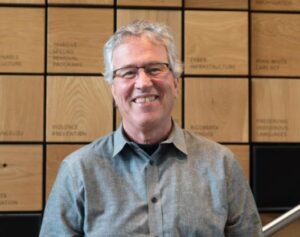
Dr. Tom Burbacher’s career took him on a journey through the fascinating world of health sciences, where data from his studies advance the understanding of the causes and treatments of childhood neurodevelopmental disabilities. The Department of Environmental & Occupational Health Sciences (DEOHS) at the University of Washington recently wrote an article about Burbacher’s many accomplishments, “Protecting children’s brains from toxic chemicals.”
Dr. Burbacher’s research at the University of Washington began in 1974 as a graduate student. He was mentored by Professor of Psychology Gene “Jim” Sackett and became part of the Washington Regional Primate Research Center, now Washington National Primate Research Center. In the laboratory established in Seattle just four years prior, Jim and Tom aimed to understand human childhood developmental disorders by studying nonhuman primates. You can read more about his 50-year journey in the American Journal of Primatology.
This research enhanced the understanding of nursery care for infant monkeys, socialization, behavior testing, and rearing conditions. It also illuminated the intricate interplay of genetic, prenatal, and environmental factors in primate development, offering best practices for nursery rearing and housing.
Moreover, the findings significantly impact the analysis of maternal substance exposure, vaccine safety, and infectious disease processes, shaping clinical decisions and deepening our knowledge of developmental and health-related risks. This research influences various aspects of child health and development, encompassing maternal medication effects, pediatric HIV/AIDS, fragile X syndrome, and stem cell-based modeling. The lab’s multidisciplinary approach continues to drive advancements in understanding pediatric diseases and potential treatments. Over 20 years, Dr. Burbacher collaborated closely with senior research scientist Dr. Kimberly “Kim” Grant, mentoring numerous undergraduates and graduate students in their lab.
Dr. Burbacher looks forward to traveling more in retirement. As professor emeritus in DEOHS, he’ll be continuing his work with Kim by managing TERIS (Teratogen Information System) a knowledge bank providing expert guidance on the pregnancy risks of medications, viruses, and vaccines.